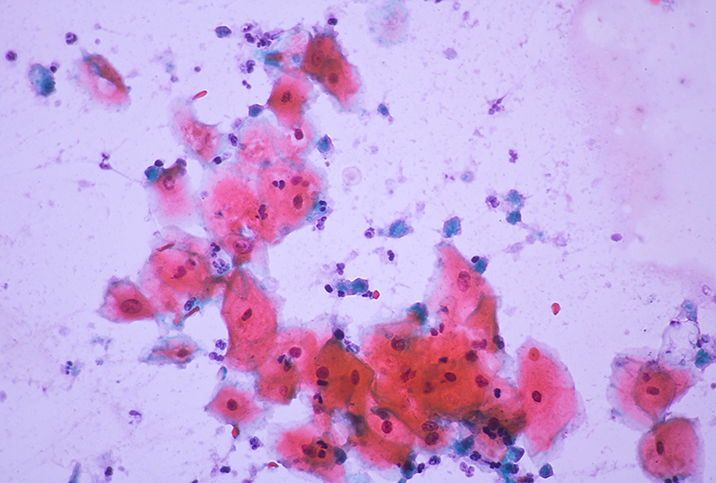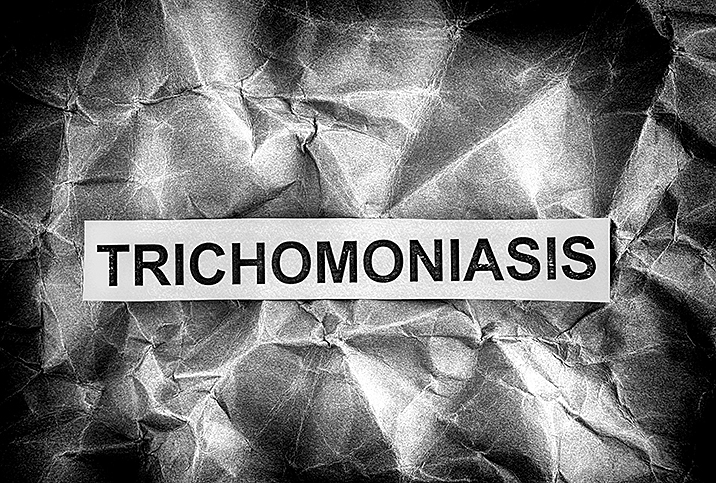What are Complications and Treatment of Pregnancy and Trichomoniasis?

Key Points
- The symptoms of trichomoniasis can resemble other types of sexually-transmitted infections. You may need to be tested for other STIs as well.
- If you are prescribed an antibiotic, it is important to finish the full course of medication to ensure the infection is gone.
- Pregnancy and trichomoniasis infection can cause premature birth and lower birth weights.
Trichomoniasis, or trich, is caused by a sexually transmitted parasite known as Trichomonas vaginalis. The parasite is transmitted during sexual fluid exchange, usually vaginal sex but it can also happen during genital touching or other types of sex.
This STI infects the lower genital tract and affects women more than men. Trichomoniasis and pregnancy are not a good pair. Here's what you should know.
How common is trich?
Trich is present in around 3.7 million of the U.S. population, according to the Centers for Disease Control and Prevention (CDC).
This common STI can be symptomless in 70 percent of cases, but 30 percent of people present symptoms at some point in their infection, shared the CDC.
The general symptoms of trich include:
- Pain during sex or ejaculation
- Pain or discomfort when urinating
- Soreness, swelling, itching or redness in the genital area
- Urinating more
Vaginal symptoms of trich include:
- Vaginal discharge (thick, thin, frothy or yellow-green)
- More discharge than normal
- Fishy smelling discharge
Penile symptoms of trich include:
- Thin or white penile discharge
These symptoms can resemble other types of sexually-transmitted infections so you may need to be tested for other STIs at the same time. The test for trichomoniasis is a vaginal or penile swab or a urine sample that's sent away to be analyzed.
Pregnancy and trichomoniasis infection can cause other health issue, including preterm labor and low birth weight, suggested a 2021 report.
What are my treatment options and side effects of trich?
"Trichomoniasis is treated with antibiotics," said Cindy Cedillo-Ruiz, M.D., board-certified family medicine physician, based in Houston, Texas. "All sexual partners need to finish the antibiotic course and have no more symptoms before resuming sexual activity,"
The most common antibiotic that is used to treat the infection is metronidazole. This trich treatment is also known by the brand names Acea, Anabact, Flagyl, Metrogel, Metrosa, Rosiced, Rozex, Vaginyl, Zidoval and Zyomet.
Although metronidazole is prescribed during pregnancy, it could result in side effects including low birth weight, indicated a 2011 report. Metronidazole is classified as pregnancy category B, meaning there are no risks in animal studies.
Metronidazole is usually prescribed in a single high dose or two pills per day for a period of 5 to 7 days. As with any antibiotic, it is important to finish the entire course to ensure the infection is cured and thus prevent future reinfection.
Common side effects of metronidazole include the following:
- Diarrhea
- Heartburn
- Metallic taste in the mouth
- Nausea
- Rash
- Vomiting
- Vaginal yeast infection
Another antibiotic often prescribed is tinidazole, known by the brand names Fasigyn and Tindamax. It is usually given as one dose only. It is typically more expensive than metronidazole and in pregnancy category C, meaning there is a risk of use during pregnancy, indicated a 2005 assessment.
The common side effects of tinidazole include:
- Constipation
- Dizziness
- Headache
- Indigestion
- Metallic or bitter taste in the mouth
- Nausea
- Tiredness
- Vomiting
As with any prescription, make sure that your primary healthcare provider knows what you'll be taking in case it reacts with any medications you're currently taking.
Drinking alcohol while taking these antibiotics is not recommended. If you are pregnant or breastfeeding, your doctor will give you a safe antibiotic.
Your insurance provider may cover antibiotics, and you can purchase from an online pharmacist if you tested with them or you can go to a sexual health clinic. Some clinics provide help for those without insurance.
Speak to your doctor to determine your best treatment for trich.
Recommended
- Why Aren’t We All Tested for Trichomoniasis?: You may never have heard of it, but protecting yourself starts with learning the trich basics.
- How to Ask a Partner to Get an STD Test: Getting tested for an STI is easy, and talking to your partner about it should be easy, too.
- Why the Guidelines for Pap Smears Are Changing: Recommendations have changed, but Pap smear tests are integral in screening for cervical cancer.
How does trichomoniasis affect your sex life?
Pregnancy and sex can be awkward enough. Add in a trich infection and you have a few new rules to follow, pregnant or not.
Nancy Cicak, nurse practitioner and director of Clinical Services at the Family Health Council of Central PA, based in Carlisle, Pennsylvania, recommends abstaining from sex for 7 days after finishing the antibiotics to ensure the infection has cleared.
"Even after treatment—if you are sexually active and changing partners or not—it's important to use barrier methods of contraception, like condoms, and get tested on a regular basis," she said.
Cedillo-Ruiz recommends regular screening before sex with a new partner, especially those who have multiple partners. She also suggests regular screens for those employed in sex work, people with positive HIV status and anyone with a history of STIs.
"You can get trich again after treatment," Cicak said. "I recommend being tested every three months."
Aside from getting yourself treated and cured, the most important thing to do is to speak to your sexual partners to let them know of your infection.
"Partner notification is important," said Helen Burkitt, senior sexual health and contraception nurse at SH:24, a health consultant in London, England. "Untreated infections can lead to further more complex infections for both people with vaginas and penises, and can cause chronic long-term health conditions and even infertility."
Various online websites will anonymously notify sexual partners on your behalf if you find out that you are infected with a sexually transmitted infection.
What about complications to your reproductive health?
Trichomoniasis can lead to pelvic inflammatory disease and cervicitis. It can also cause fertility problems. For those who are pregnant, it can cause premature birth and lower birth weights.
It can also make sufferers more susceptible to HIV (human immunodeficiency virus) and other STIs.
As well as trichomoniasis, unprotected sex can transmit other conditions, some of which may be symptomless for some time, such as the sexually transmitted diseases (STDs) chlamydia and gonorrhea or the virus HIV.
"For infections of gonorrhea, chlamydia and trichomoniasis, they can take up to two weeks to show up on a test after sexual contact," Burkitt said.
This means that it's important to give your health professional all the information regarding recent sexual partners, especially when it comes to unprotected sex.
When properly used, a condom is the best protection against STIs and STDs. It also helps to know how to speak to partners about getting tested and being able to recognize the symptoms of common STIs and STDs.
Continuing to educate yourself on your sexual health is important to keep yourself safe and healthy.
"Sex education empowers people to look after their sexual health and be comfortable talking about it, which helps decrease the stigma around sexual health and STIs," Burkitt said.
Susan Milstein, Ph.D., M.A., certified sexologist and medical advisor at Women's Health Interactive, based in Brooklyn, New York, noted that good-quality sex education is essential.
"Misinformation can be dangerous in terms of your sexual health and well-being," she said.
The bottom line
Follow your healthcare professional's treatment plan to cure your trichomoniasis infection and to help prevent reinfection. If you have any concerns about your symptoms, reach out to your doctor for help.


















